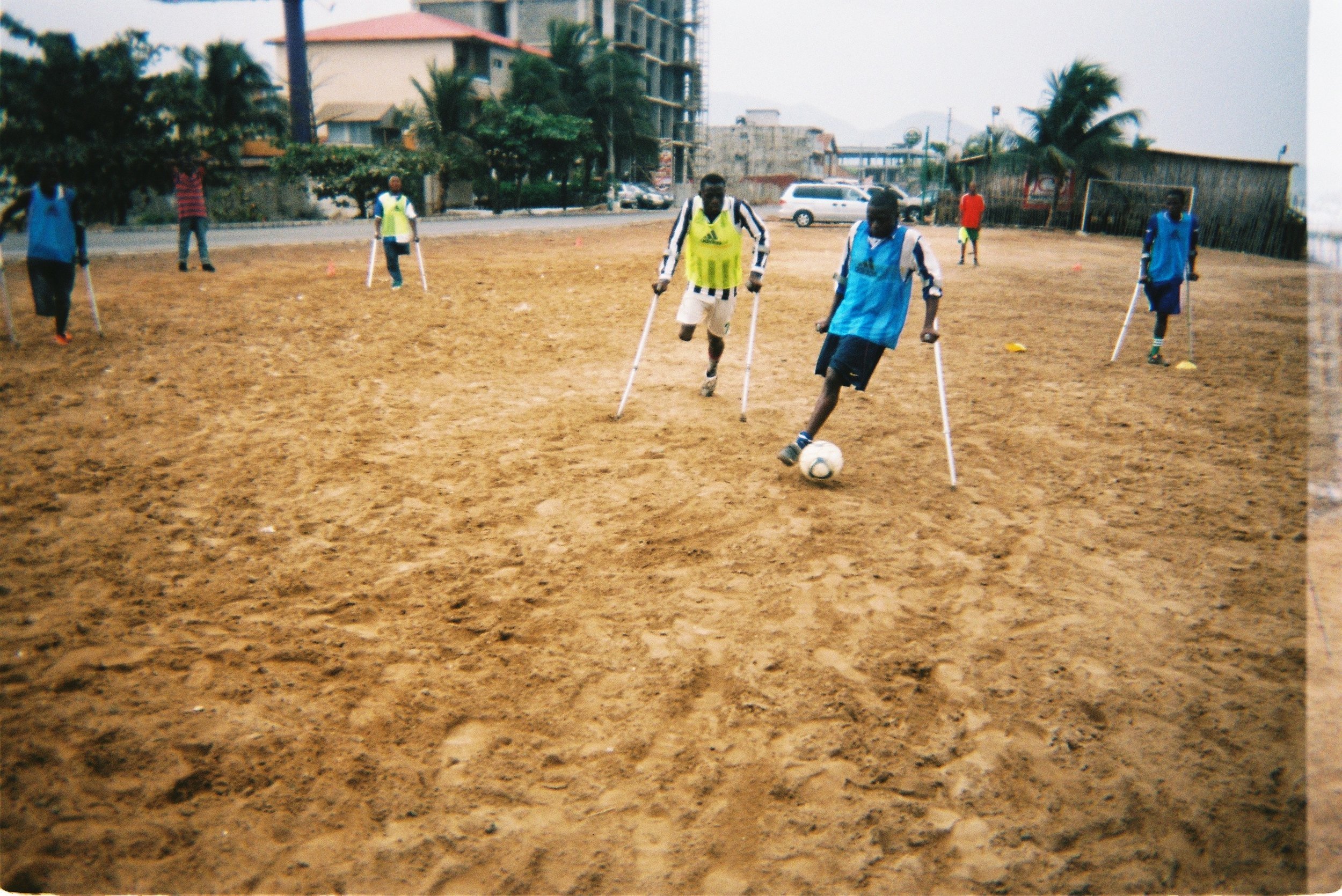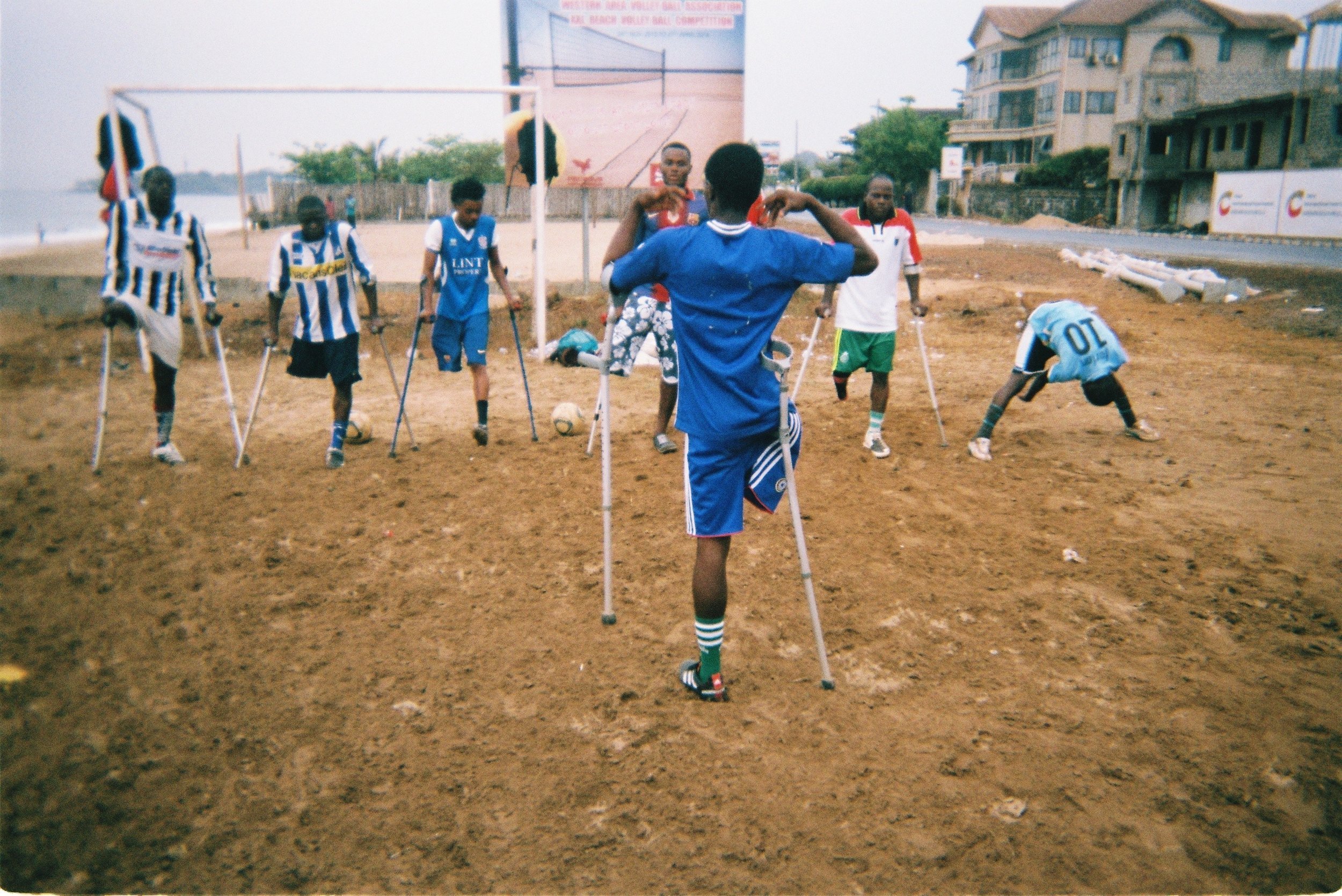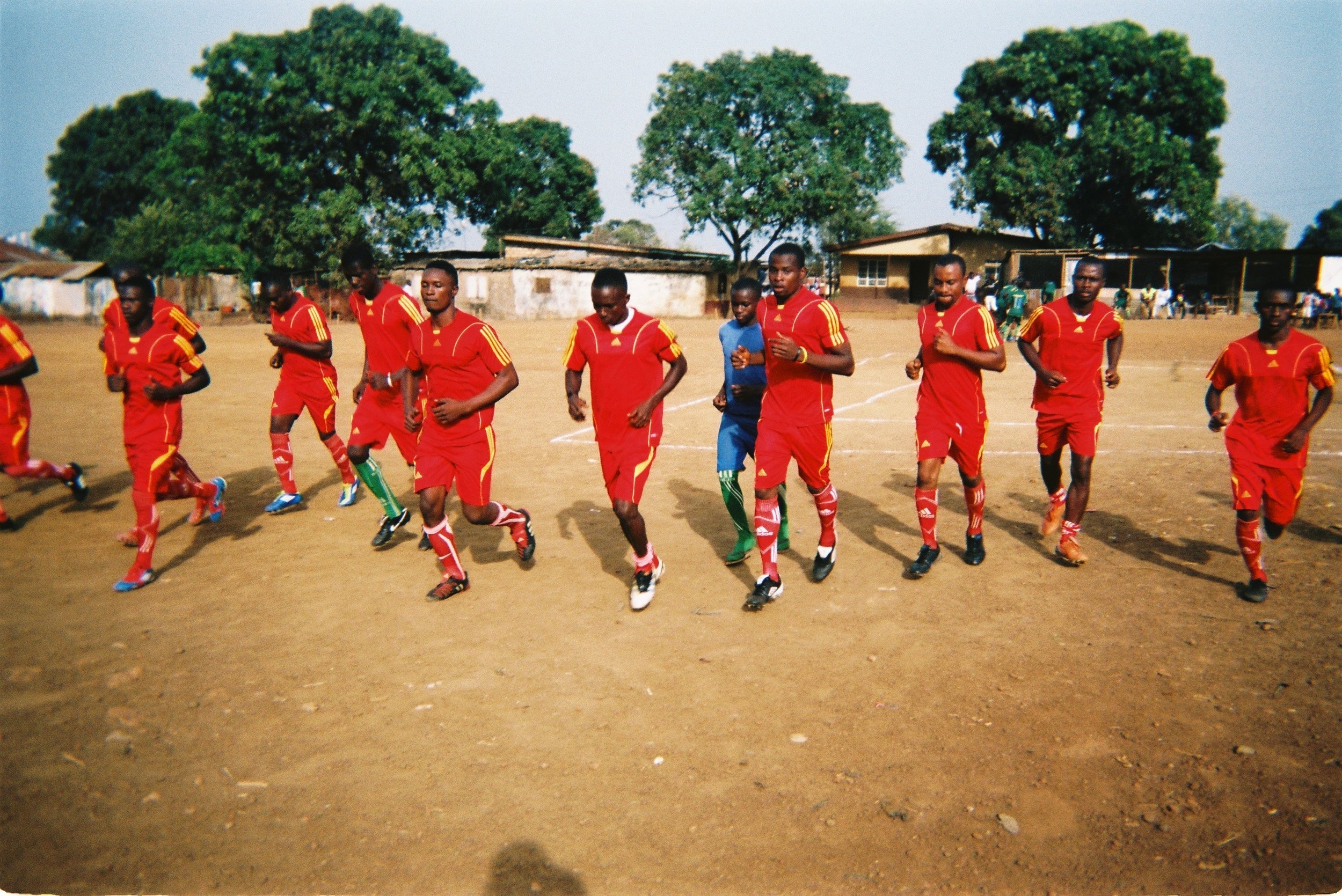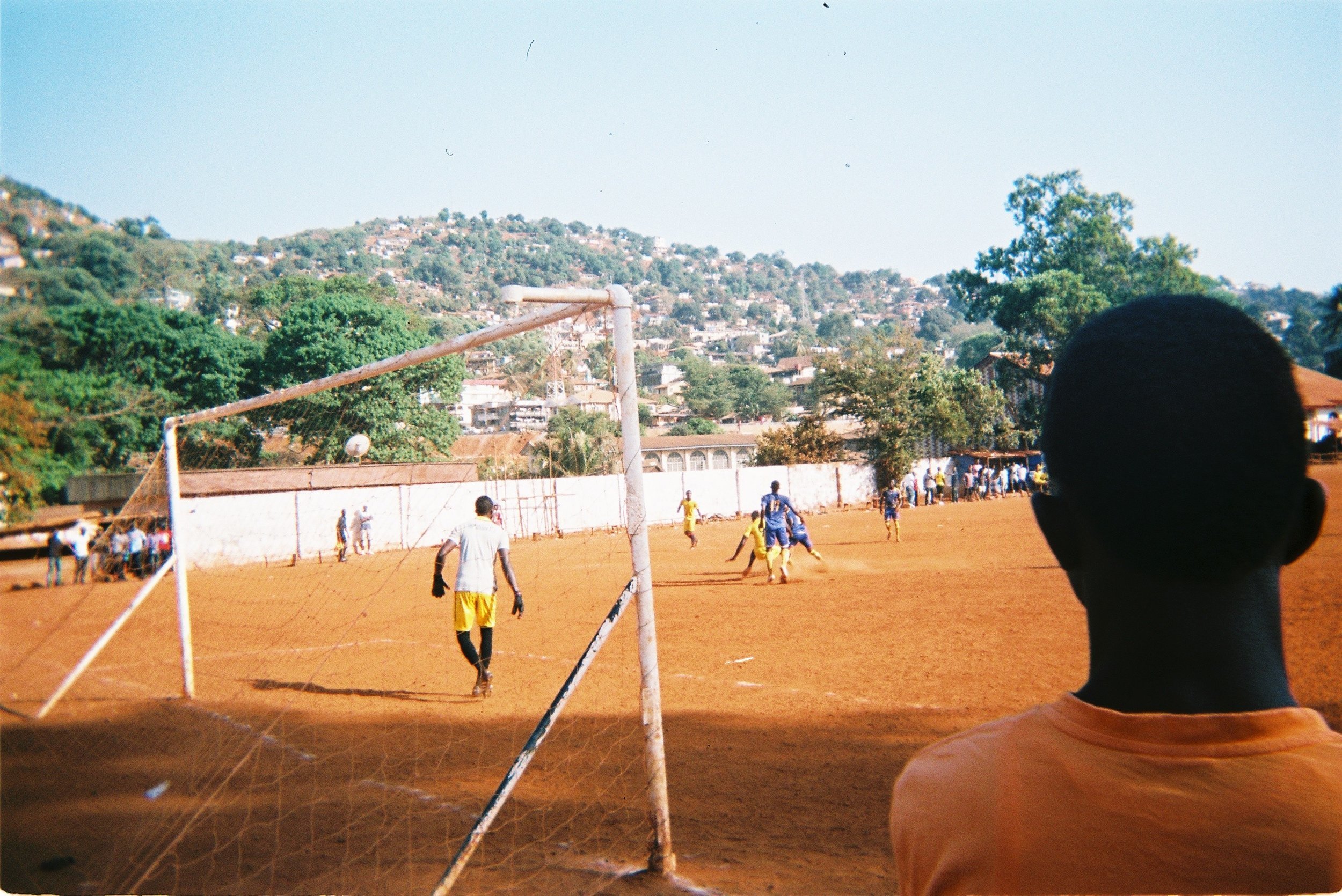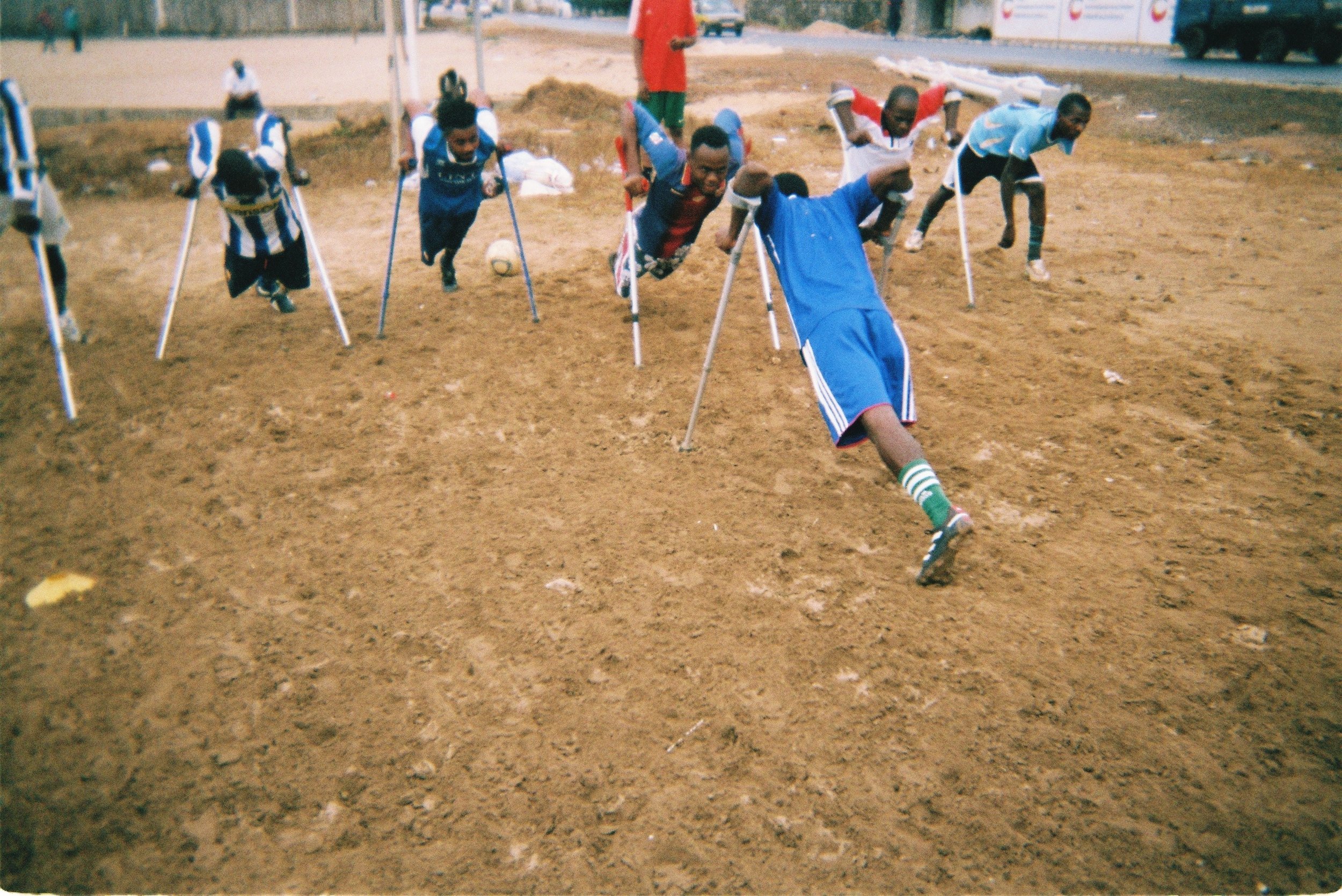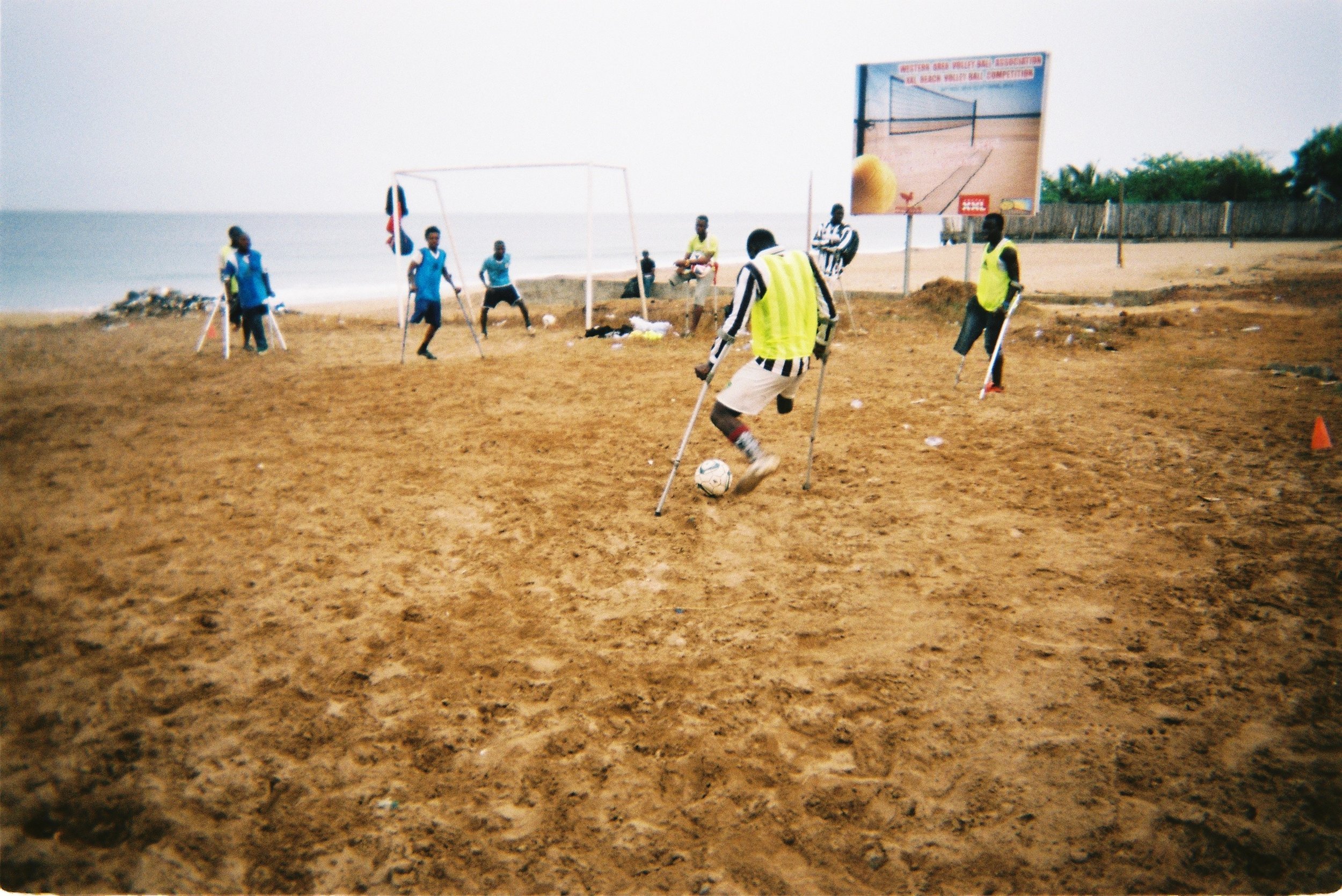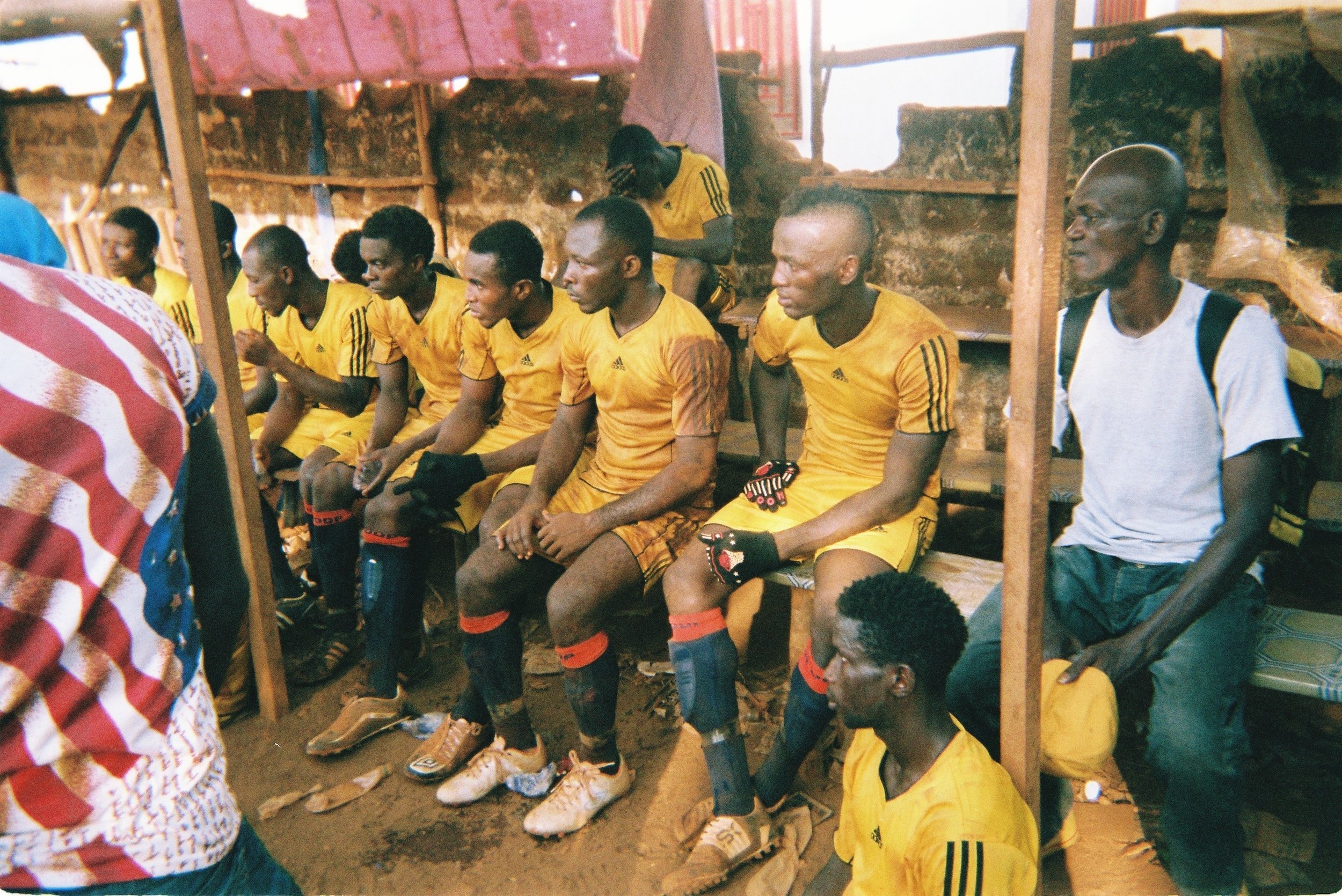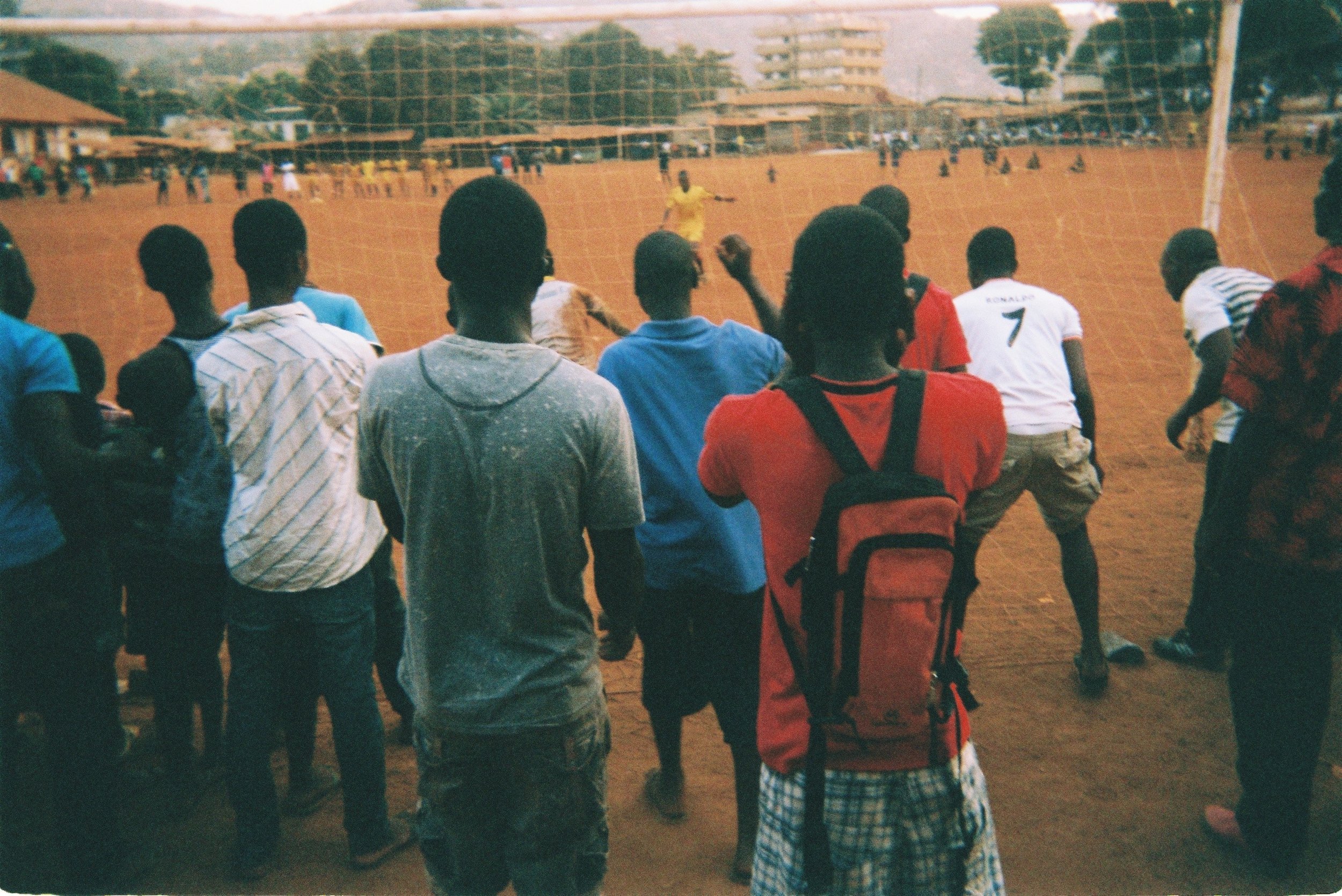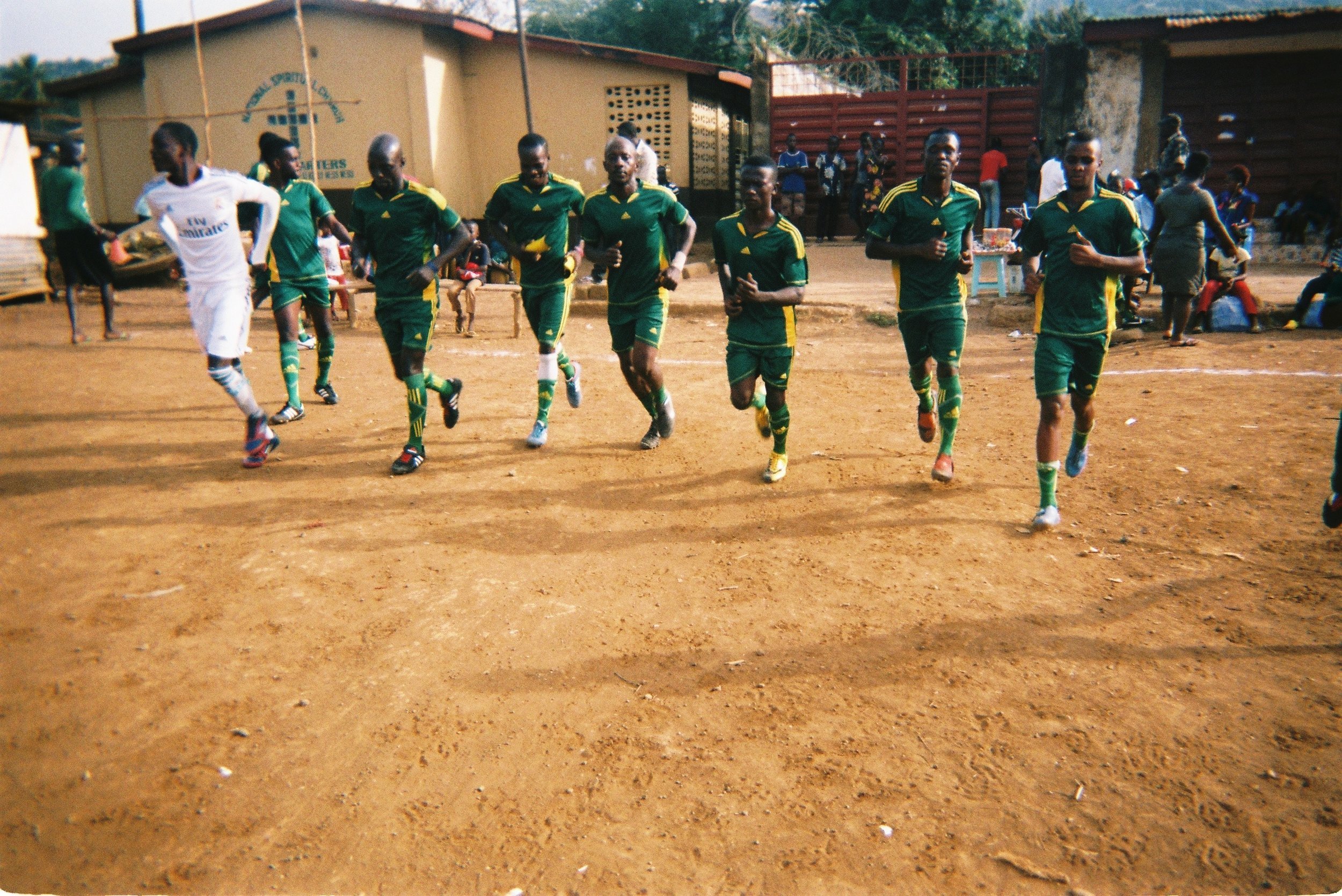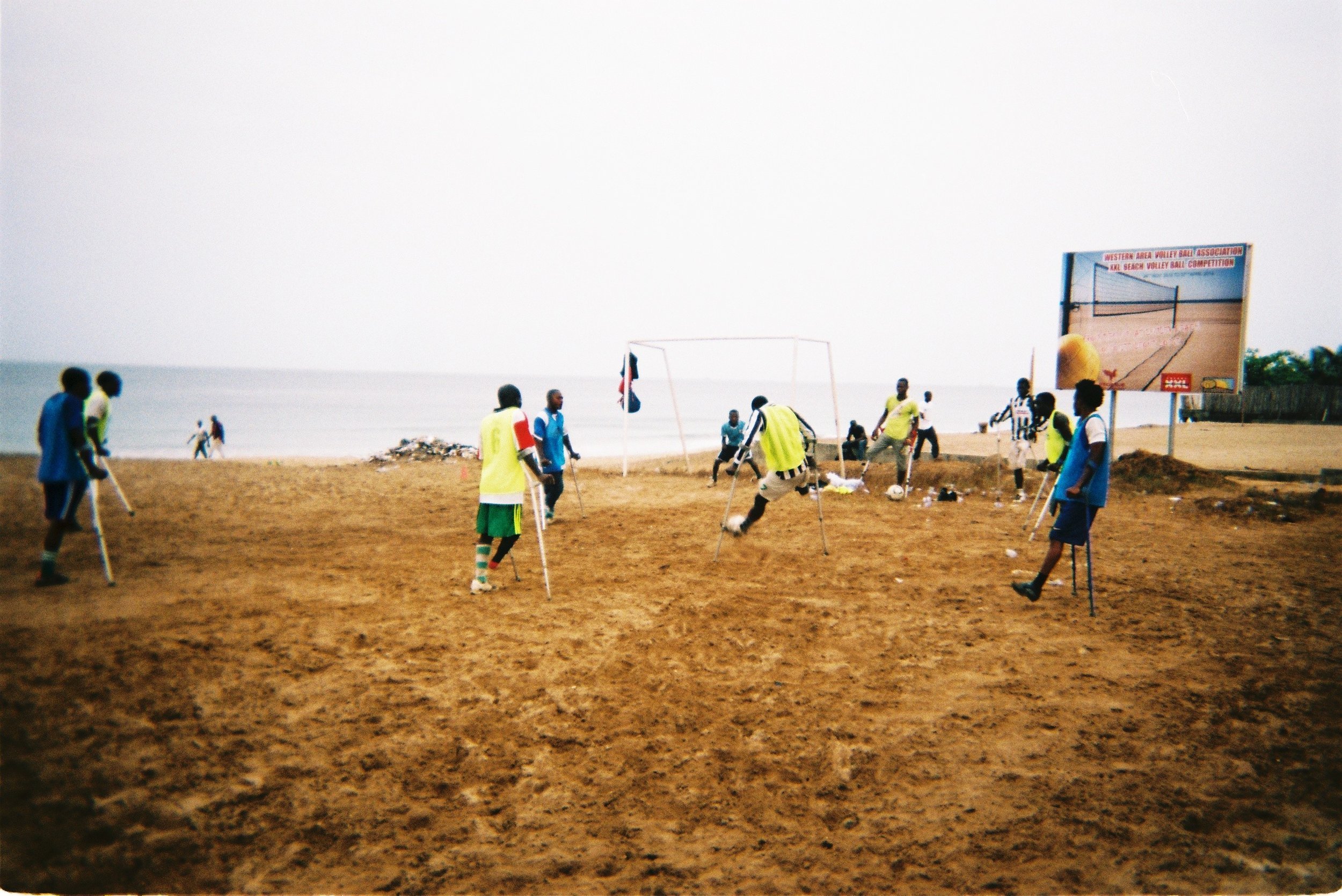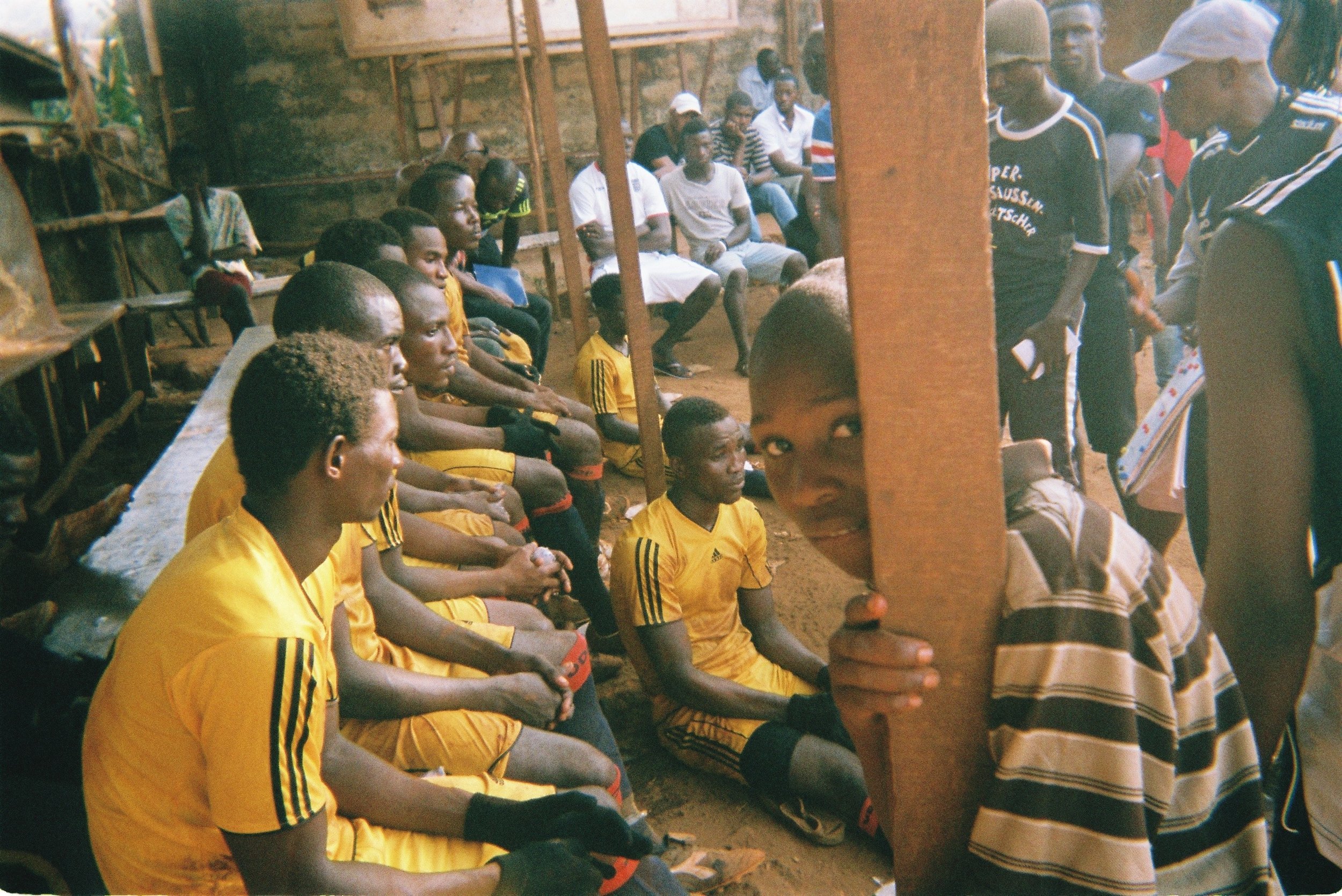Civil War, Amputees, And Football
Pastor Abraham Bangura, Sierra Leone
Goal Click received our first ever story back from Sierra Leone. Pastor Abraham Bangura is coach of the Single Leg Amputee Sports Association (SLASA) football team. SLASA was founded in 2001 at the end of the decade long civil war in Sierra Leone and runs a football-based programme for amputees. There are currently six football teams throughout the country that participate in the national Amputee Football League, and the national team takes part in various international tournaments.
Pastor Bangura took photos of SLASA training on Lumley Beach in Freetown, Sierra Leone, and also of teams from across Freetown taking part in an annual community cup he organised. His photos of the amputees are incredibly powerful, demonstrating that football is an important way to help those affected by conflict overcome their injuries and re-integrate into society. We spoke with Pastor Bangura about the photos he took, how he became the coach of SLASA and the importance of SLASA in Sierra Leone.
“For us to turn their pain into power, we needed to start this amputee football. There are times I think about the senseless war that took place in our country, it makes me want to shed tears.”
How did you become involved with SLASA?
As you know in 1991 the war broke out in our country and some of the boys who are today playing for the national team and SLASA, they loved football before the war. So for us to turn their pain into power, we needed to start this amputee football. There are times I think about the senseless war that took place in our country, it makes me want to shed tears.
In 1995 seven young children, including my two brothers, were playing with a hand grenade, an explosive used in war. Why were they playing with this hand grenade? These kids never knew what they were doing. So I saw it, it was about to explode; I took this hand grenade and went to throw it away. Rather unfortunately for me the hand grenade exploded and I lost two of my fingers. Having lost two fingers I saw these boys, who are now the amputee side, playing football with one leg and goalkeepers with one arm. And I said to myself; I think as a Pastor I need to give them counselling. So I started giving them counselling. Not until 2010 when I came to the UK did I do my coaching course. So as somebody who has been affected by this war, let me give my ideas and capacity that I have gained in the UK, go back home and make sure I implement it into the lives of the amputees.
What did you try to say and represent with the photos? Was there any wider meaning to the photos?
Yes. One of the main things I was trying to showcase is that disability is not inability. Even though these guys are disabled, at the same time they have the ability to do what able bodies can do. Another thing I was also trying to show was that we have able-bodied footballers back in Sierra Leone who are professionals. They can play good football.
Why is SLASA so important for Sierra Leone?
SLASA is the organisation that started amputee football in the country, and SLASA is the organisation that moved amputee football into Liberia. It was SLASA who organised the first regional amputee tournament in Sierra Leone. This year, our 53rd anniversary of independence, the President of our country awarded SLASA an award as a sports team that is taking peace to different nations.
You can see that what SLASA is doing is improving the lives of these young lads and also improving the capability of amputees. We are not just teaching them about football, we are also capacitating them, such as giving them loans to do microfinance. We want to see the amputees coming out on the streets, with skills, and then be somebody in society that society will recognise.







